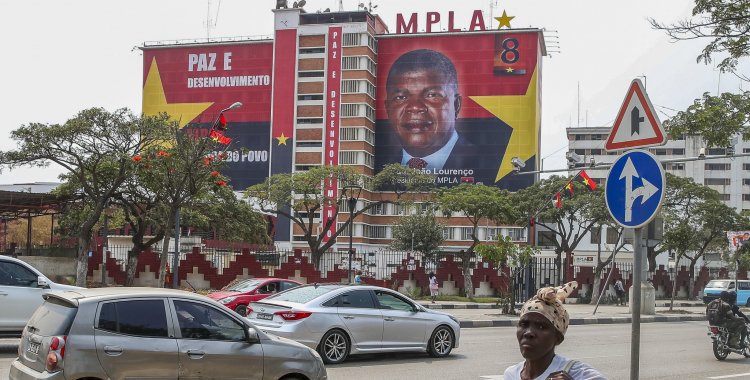Rui Verde, who commented, in statements to Lusa, on the announcement by the Popular Movement for the Liberation of Angola (MPLA) about the holding of an extraordinary congress in December this year, said that this should be a moment of "refounding the party".
"At this moment, the MPLA, as it is, has reached the end of the line, it is not possible for it to win any election at national level", said the jurist.
According to Rui Verde, "there is great discontent due to its economic policy – or non-politics –, inflation, unemployment and ability to connect with the people".
"So, obviously, the MPLA needs to give a signal to the people that it wants to change, that it wants to do what Agostinho Neto used to say, and which he never practiced, which was to solve the people's problems", he stressed.
For Rui Verde, "it is essential, if the MPLA does not want to lose the next elections, that it renew itself, that it refound, that it bring a new message and above all new work".
According to the jurist, the idea persists that "the MPLA does not work for the people, it works to enrich small cliques and small elites, and this idea has to be changed to win elections".
The academic highlighted that "there is a permanent repetition of mistakes", hoping that, at the extraordinary congress, "finally the MPLA leaders will have woken up and will begin to reverse this gap".
"It's a decisive moment, it's almost a make or break moment. Either this extraordinary MPLA congress gives new strength to the party or the party will wither away", he considered.
The holding of this extraordinary congress, according to the MPLA, comes within the scope of 50 years of independence, which Angola celebrates in 2025, for "an exhaustive assessment" of the country's situation.
The jurist stressed that other topics may be on the congress' agenda, "which the activists want", including the renewal of the party's statutes, if they so wish.
"Yes, in an extraordinary congress the statutes can be changed, an extraordinary congress can do everything that an ordinary congress can do", said Rui Verde, contradicting "some different interpretation of many famous jurists in Angola".
"I do not have this interpretation, the MPLA statutes in these aspects are very clear, they do not distinguish the powers of one congress from another, the difference between one congress and another is a chronological difference, it is not a difference in terms of powers, there is no this differentiation in the MPLA statutes", he argued.
Regarding the possibility of debating the issue of a third term of the MPLA leader, João Lourenço, for the position of President of the Republic, the jurist considered that "at this moment there are no conditions or support, even within the MPLA itself, for the third term".
The analyst expressed skepticism about the possibility of a third term, also for legal reasons, remembering that Angola was the first African country to ratify the Malabo Protocol, a legal instrument that created an African criminal court.
"Article 28 of this Malabo Protocol creates a crime called unconstitutional change of Government and part of this crime is the offense against the principle of democratic change or the introduction of a constitutional revision that is inconsistent with the principles of the Constitution itself", explained.
"To what extent the third term will not fall within the scope of this new international crime to which Angola was the first African country to join, is a question that arises", he concluded, stressing that "the path to the third term is increasingly narrow".







